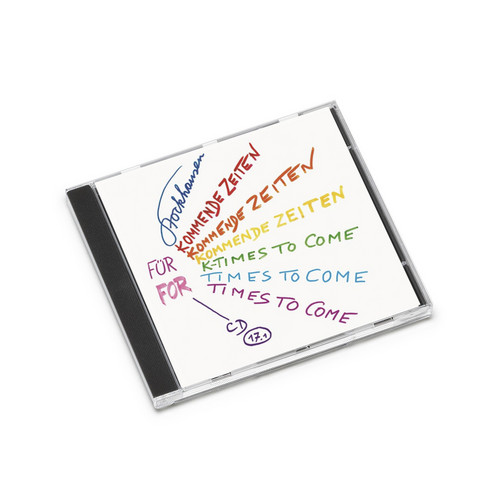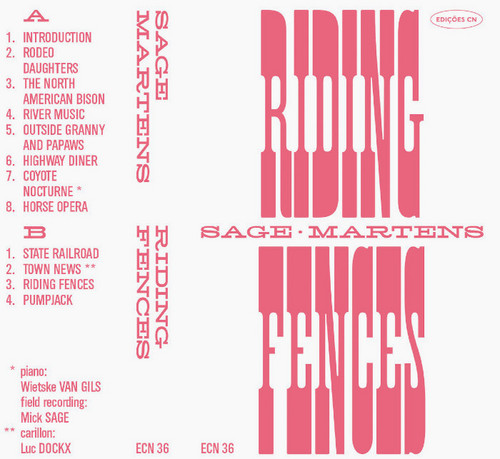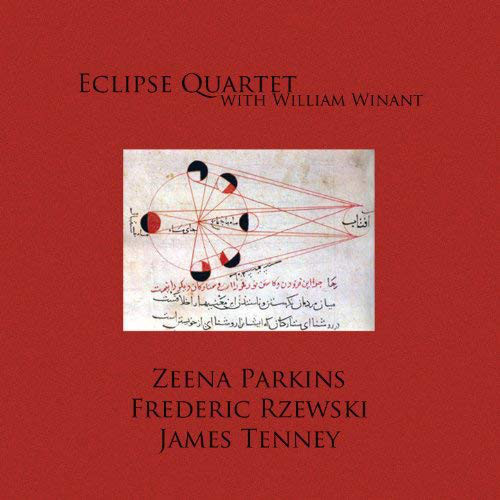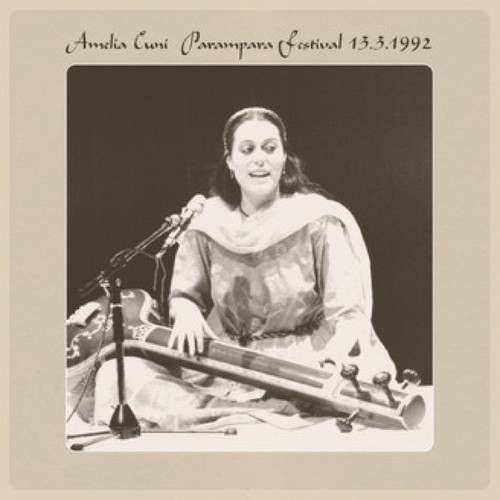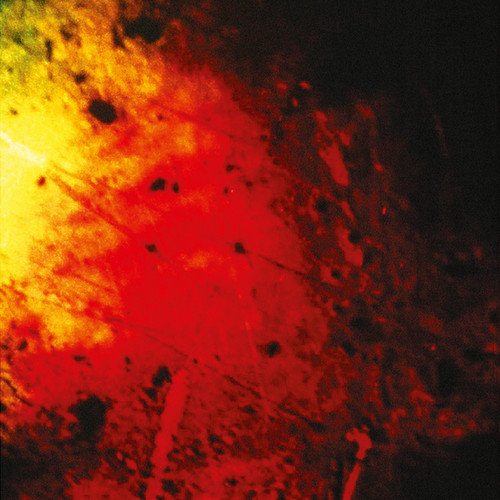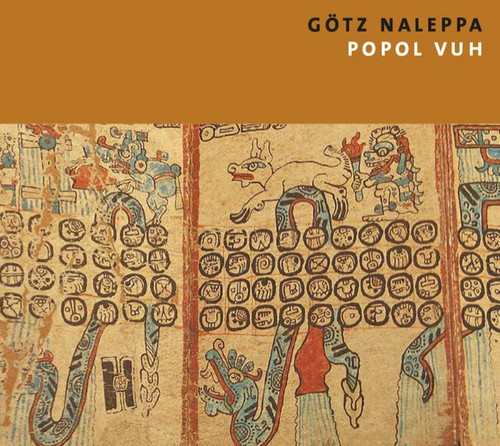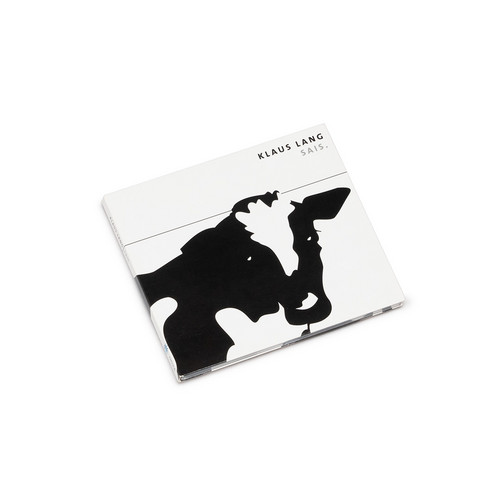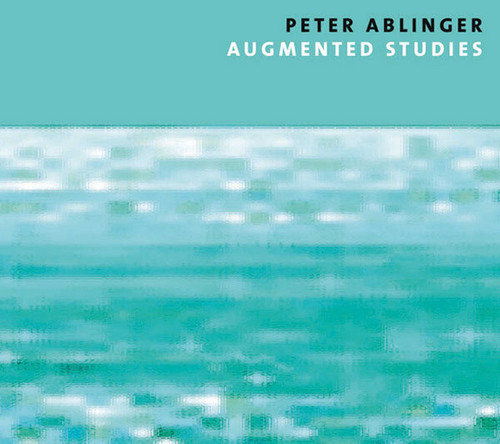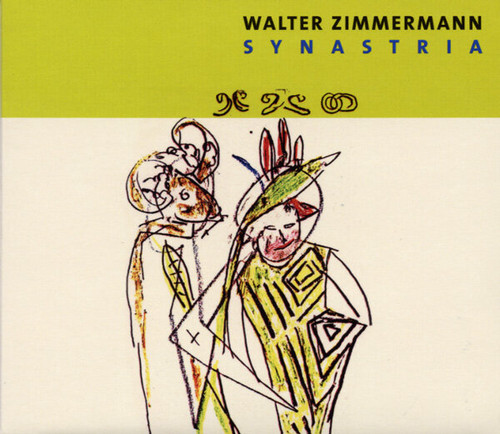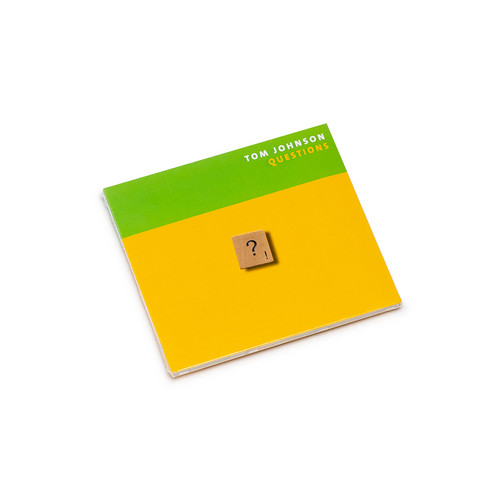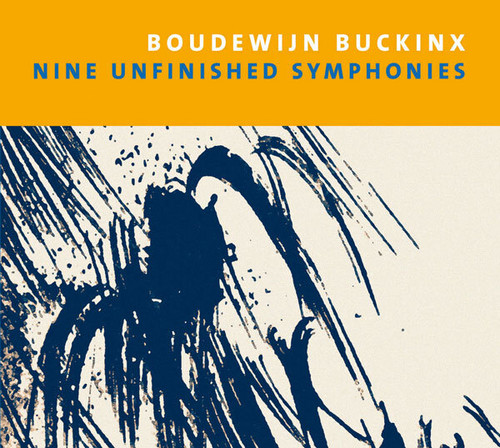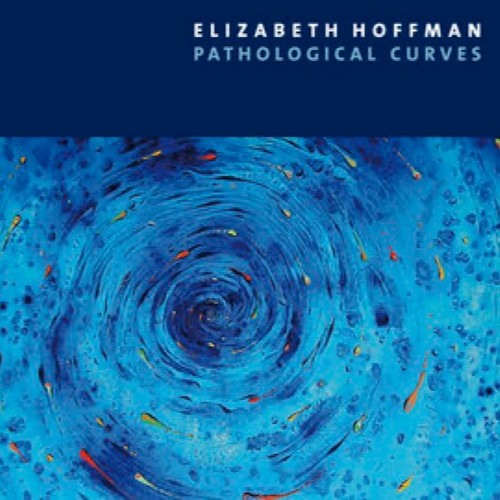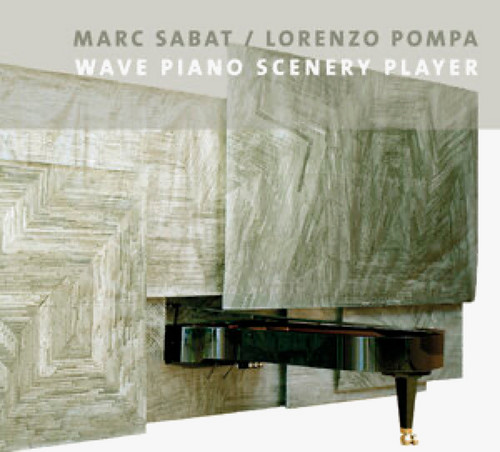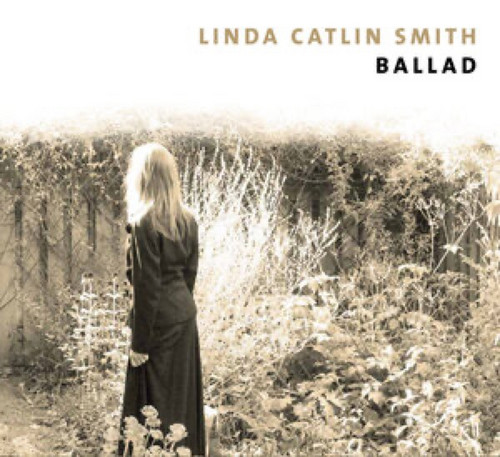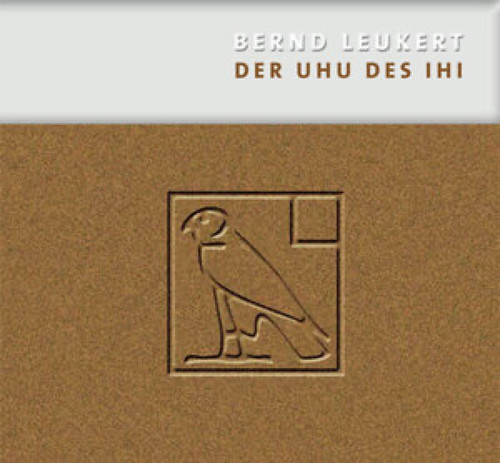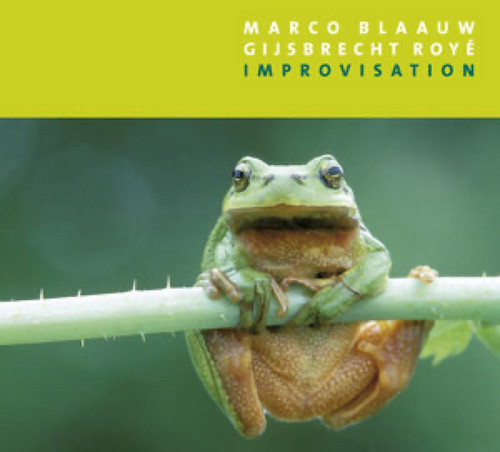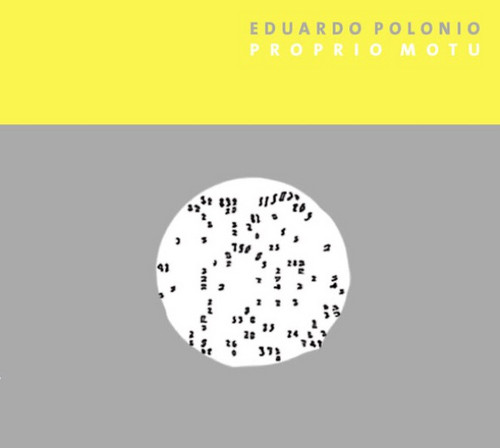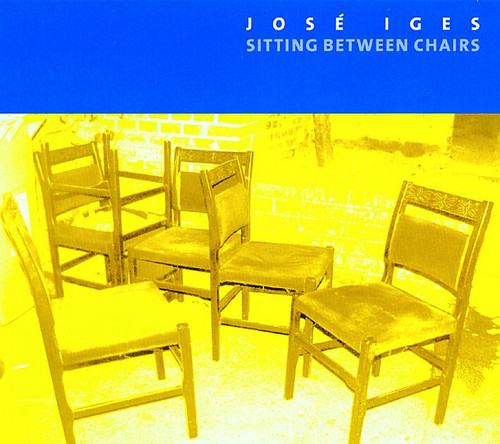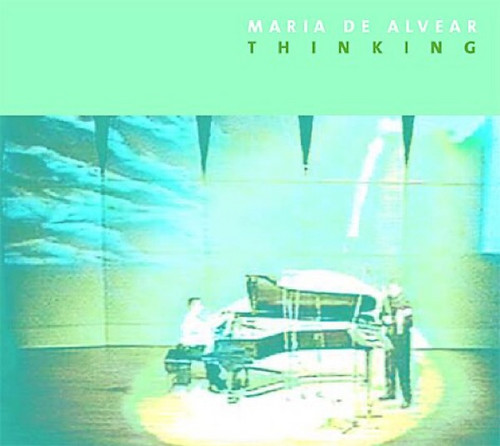Für Kommende Zeiten
*2022 Stock.* Für kommende Zeiten is a relatively contemporary recording of some intuitive music pieces from Stockhausen's second collection of text scores, recorded by the Ensemble for Intuitive Music Weimar (Michael von Hintzenstern (piano/harmonium), Matthias von Hintzenstern (cello), Hans Tutschku (synthesizer), Daniel Hoffmann (trumpet)) on May 28, 2005. During a period of personal upheaval and crisis, Stockhausen wrote a set of texts, Aus Den Sieben Tagen, which are essentially verbal inst…
Riding Fences
*Limited edition of 300 copies.* Matthew Sage’s (Cached Media, Fuubutsushi) and Lieven Martens (Edições CN, Dolphins Into The Future) make a Western album together. Sage: “I have always found the idea of whatever "Western" means in America to be very elusive. It feels like a fantasy that we keep trying to relive by retelling exaggerated stories. An echo of an echo of an echo...” Martens: “In Belgium, "Western" entered the minds through movies, television series, theme parks, magazines. (…) the o…
Spectral Malsconcities
The evolution of the string quartet repertory has accelerated during the last half of the twentieth-century and beyond as composers from both the mainstream and the avant-garde have mined its seemingly inexhaustible creative resources. This CD features the virtually unprecedented combination of string quartet and percussion. It contains three works by prominent American experimentalist composers from several generations exploring the ensemble’s unique sonic resources in diverse stylistic setting…
Parampara festival 13.3.1992
Black Truffle is pleased to announce Parampara Festival 13.3.1992, a stunning performance by Amelia Cuni captured live in Berlin almost thirty years ago. Milanese by birth and resident in Berlin for many years, Cuni lived in India for over a decade, studying the classical vocal style of dhrupad under masters of the form. Though perhaps known to many listeners primarily through her performances of the vocal music of John Cage and collaborations with Werner Durand and Terry Riley, she is recognise…
Funeral Cargo
** Edition of 300 copies pressed on clear vinyl. Mastered by Veronica Vasicka ** A weight of history flows through Ann Margaret Hogan’s keys with a stark intimacy, beautifully illuminated by naturally effortless, quietly grand songwriting. It’s a direct continuation of the landscaped themes and atavism of 2020’s ‘Honeysuckle Burials’ and the ‘Reversing Into Tomorrow’ collaboration with Karl O’Connor, vividly capturing the slow passage of time in a way that has quite literally compelled us to sto…
Popol Vuh
"The Popol Vuh- the Book of Counsel“ of the K'iché-Maya belongs to the most important creation myths of the early advanced civilizations in the world. A Maya from the K'iché people, who had learned Spanish during the conquista, wrote down the the texts in K'iché with Latin letters between 1545 and 1555. Before that, the texts were only passed on orally. Father Francisco Ximenéz copied this book and translated it into Spanish. Then he returned the original to the K'iché people. In this way the b…
Sais.
* 2021 Stock * Sais. is a piece about cows. Cows are a topic quite familiar for a composer who lives in an Austrian mountain village at 1000 metres hight. He finds them right in front of his door. The cows that are grazing on a juicy green under a bright blue sky - so we might imagine - are one side of the trio. Within the 100 page long score we meet them in the shape of a line of overtones. Just as natural as the life of a cow on an alpine meadow is the musical material that builds SAIS. as a s…
Augmented Studies
* 2021 Stock * "When I imagine, as I sometimes do, that evolution were possible, Complexity is not its goal, but perhaps the safety net for a possible Immediacy. This opens up the possibility to exercise sufficient safeguards in an ever finer woven net of abstractions ? if not to escape directly ? to at least be able to risk a glimpse through the netting: a glimpse unfiltered through abstraction, signs, predetermined patterns, a glimpse of unaltered reality." - Peter Ablinger
Synastria
* 2021 Stock * Philosophical writings from antiquity have frequently underlaid Zimmermann’s work of recent years, particularly in relation to notions of time an ‘harmonia’ [...] Another recurrent theme in later works is that of the ‘broken unison’ (both melodic and rhythmic), which clearly has an allegorical/social dimension as well as a musical one [...] The isolated performance of single of his pieces emphasises their ‘otherness’ in relation to the main trends in new German music, whereas the …
Questions
* 2021 Stock * Most music proceeds with great self-assurance, more like an answer than like a question, but these pieces raise questions. We hope you will not only listen to the music as the pairs go by, but we will also want to decide whether they are same or different. Try it. Maybe your musical perceptions are better than you think. And if not, well, no one is going to grade you, and you can always try again! - Tom Johnson
This situation raises new questions, which Johnson undoubtedly intends…
Nine unfinished Symphonies
The Nine Unfinished Symphonies were conceived as one entity. They are written in my musical native tongue; the musical grammar and idioms with which I have become so familiar that I can converse in them spontaneously, without thinking, so that I can devote my full attention to what I actually want to do. It appears that we need narratives, such as the ‘sacred’ number nine with symphonies, or the concept of the Unfinished, which stands in sharp contrast to the fragmentary or the ‘uncapitalized’ u…
Pathological Curves
To sonically modify sound, not as a composerly or listenerly injunction but as a condition of its possibility: such is the task of Elizabeth Hoffman. Hers is not merely a music of the "verb" - that composers "do" something or "perform" something on the sonic. Hers is an "adverbial" music.
Above all, adverbial music modifies - sound, yes, but more fundamentally the space in which sound appears and the temporality that it solicits as it vanishes, always. Adverbial music, reticently and generously,…
Wave Piano Scenery Player
Wave Piano Scenery Player consists of several artifacts brought into a single structure: large black oil paintings on paper sheets dividing an automatic grand piano in two parts (sounding body, keyboard); tree pieces of music hamonically linking the 88 keys of the piano by combining them with mirotonally tuned sinewaves; a subwoofer/loudspeaker reproducing the elctronic tones; a pianist and a computer, both acting as performers.
The time-based form is deivides into threee parts, in which Sabat c…
Painted Cakes Are Real, Too
When you are listening to his pieces and are completely at ease, they offer the listener the beauty of pure sound: I believe this also applies to his likeminded friends. Even when and if they are of a continuous narrative type, they just create the right situation to listen to sounds. As the title reveals: Painted cakes are real, too. The beautiful sounds are repeated in order to remain purely sound. This repetition does not build up a narrative, it becomes more complicated and excited not in or…
Ballad
The word "ballad" implies a tale or narrative, and while there is no literal story being told there, I found myself thinking of the two performers as co-travellers in a terrain - or as dance partners - and the music as sometimes like a song they sing together, sometimes a landscape they cross, sometimes a mood, sometimes a monologue, and sometimes a fine line they trace. In the end, it is a ballad about the cello and the piano, and the way I hear them together. - Linda Catlin Smith
Der Uhu des Ihi
"Leukert brings back intuition into the computer-mechanical techniques of contemporary classical music. His compositions derive from the hearing experience - he has become a David Lynch for the ‘cinema pour l’oreille’, who is operating with the ironically associative scepticism of Godard. A blessing that Maria De Alvear’s small label ‘World Edition’ now produced eight of Leukert’s audio pieces on CD; among them the enchanting trilogy Wildwechsel" . - Alban Nikolai Herbst
Improvisation
That’s the name of the game... Marco Blaauw plays on a quartertone double bell trumpet, a shell, brought from Madagascar,a slide trumpet, piccolo trumpet, quartertone flugel horneven megaphone and flexible tube. Gijsbrecht Royé plays on a self-made bass-zither. To play on the four groups of bass grandpiano strings, he uses different kinds of sticks; two bows (normally used for double bass), metal strings, nails, brushes, knives, rat-tailed files and metal scouring pads.
Proprio Motu
* 2021 Stock * The disc summarises a major part of Eduardo Polonio’s work over the last decade and in some way is a complement to his 1969 - 1998 anthology.
There is a deep line, indecipherable for me, that runs through the work of Eduardo Polonio. It is a spectral base that we can track to his early works. ... In his latest work, Sudoku-mix, he buries it even deeper. We should not opt for the easy programmatic interpretation of the phenomena he points to in his work. The harmonic plays and even…
Sitting Between Chairs
* 2021 Stock * Metamusic. A suitable term for all these works, if by this we understand that musical aspects are somehow transcended, transgressed.
Sitting between chairs. A transgression which leads, through interactions of materials and intentions, controlled use of randomness or indeterminacy, conceptual game of measurement or definition, to the contemplation of music itself as yet another fragment of the whole, because the sound objects may have a dramatic or musical nature.
How could this w…
Thinking
* 2021 Stock * When i speak of spirit it is far beyond what most people think of.I am confident in my ways. I dont care about what people think of me because i do know that what i have been shown and told is far beyond. - Tsolagiu M.A. RuizRazo
For piano + violin + videoStephen Clarke - pianoMarc Sabat - violintext: Tsolagiu M.A. RuizRazoLive-recording from 01/12/2001, Glenn Gould Studio, Toronto, Canada
